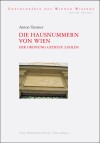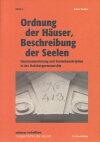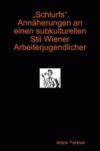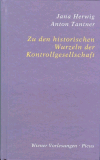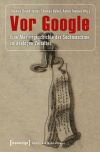BBC: Sendung zur Zeitmessung
Wurde gestern von In Our Time auf BBC ausgestrahlt:
The Measurement of Time
Melvyn Bragg and his guests discuss the measurement of time. Early civilisations used the movements of heavenly bodies to tell the time, but even in the ancient world more sophisticated timekeeping devices such as waterclocks were known. The development of mechanical clocks in Europe emerged in the medieval period when monks used such devices to sound an alarm to signal it was the hour to pray, although these clocks did not tell them the time. For hundreds of years clocks were inaccurate and it proved hard to remedy the problems, let alone settle on a standard time that the country should follow. It was with the advent of the railways that time finally became standardised in Britain in the mid-19th century and only in 1884 that Greenwich became the prime meridian of the world. Atomic clocks now mark the passing of the days, hours, and minutes and they are capable of keeping time to a second in 15 million years.
With:
Kristen Lippincott
Former Director of the Royal Observatory, Greenwich
Jim Bennett
Director of the Museum of the History of Science at the University of Oxford
Jonathan Betts
Senior Curator of Horology at the Royal Observatory, Greenwich
Producer: Natalia Fernandez.
Download des MP3 (20 MB, 42 Min): http://downloads.bbc.co.uk/podcasts/radio4/iot/iot_20120329-1130a.mp3
The Measurement of Time
Melvyn Bragg and his guests discuss the measurement of time. Early civilisations used the movements of heavenly bodies to tell the time, but even in the ancient world more sophisticated timekeeping devices such as waterclocks were known. The development of mechanical clocks in Europe emerged in the medieval period when monks used such devices to sound an alarm to signal it was the hour to pray, although these clocks did not tell them the time. For hundreds of years clocks were inaccurate and it proved hard to remedy the problems, let alone settle on a standard time that the country should follow. It was with the advent of the railways that time finally became standardised in Britain in the mid-19th century and only in 1884 that Greenwich became the prime meridian of the world. Atomic clocks now mark the passing of the days, hours, and minutes and they are capable of keeping time to a second in 15 million years.
With:
Kristen Lippincott
Former Director of the Royal Observatory, Greenwich
Jim Bennett
Director of the Museum of the History of Science at the University of Oxford
Jonathan Betts
Senior Curator of Horology at the Royal Observatory, Greenwich
Producer: Natalia Fernandez.
Download des MP3 (20 MB, 42 Min): http://downloads.bbc.co.uk/podcasts/radio4/iot/iot_20120329-1130a.mp3
adresscomptoir -
Communication - Fr, 30. Mär. 2012, 09:38


